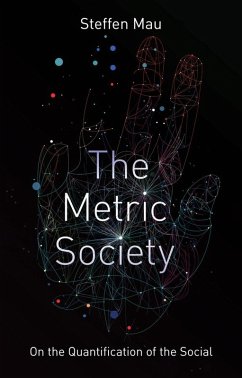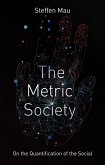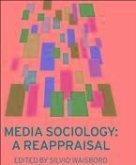In today's world, numbers are in the ascendancy. Societies dominated by star ratings, scores, likes and lists are rapidly emerging, as data are collected on virtually every aspect of our lives. From annual university rankings, ratings agencies and fitness tracking technologies to our credit score and health status, everything and everybody is measured and evaluated.
In this important new book, Steffen Mau offers a critical analysis of this increasingly pervasive phenomenon. While the original intention behind the drive to quantify may have been to build trust and transparency, Mau shows how metrics have in fact become a form of social conditioning. The ubiquitous language of ranking and scoring has changed profoundly our perception of value and status. What is more, through quantification, our capacity for competition and comparison has expanded significantly - we can now measure ourselves against others in practically every area. The rise of quantification has created and strengthened social hierarchies, transforming qualitative differences into quantitative inequalities that play a decisive role in shaping the life chances of individuals.
This timely analysis of the pernicious impact of quantification will appeal to students and scholars across the social sciences, as well as anyone concerned by the cult of numbers and its impact on our lives and societies today.
In this important new book, Steffen Mau offers a critical analysis of this increasingly pervasive phenomenon. While the original intention behind the drive to quantify may have been to build trust and transparency, Mau shows how metrics have in fact become a form of social conditioning. The ubiquitous language of ranking and scoring has changed profoundly our perception of value and status. What is more, through quantification, our capacity for competition and comparison has expanded significantly - we can now measure ourselves against others in practically every area. The rise of quantification has created and strengthened social hierarchies, transforming qualitative differences into quantitative inequalities that play a decisive role in shaping the life chances of individuals.
This timely analysis of the pernicious impact of quantification will appeal to students and scholars across the social sciences, as well as anyone concerned by the cult of numbers and its impact on our lives and societies today.
Dieser Download kann aus rechtlichen Gründen nur mit Rechnungsadresse in D ausgeliefert werden.
'In this brilliant book, Steffen Mau does not simply demonstrate the distortions that occur when excessive reliance is placed on statistical indicators, but shows how the current mania for measurement and quantification eats away at social relationships and even our sense of ourselves.'
Colin Crouch, Emeritus Professor at the University of Warwick
'Mau, a leading expert on inequality in Europe, is tackling a question of growing significance: the relationship between quantification, status comparison and social competition. His probing analysis offers a fresh perspective for understanding the brave new world of self-monitoring we live in. It offers convincing explanations for current anxieties of performance that are fed by growing inequality and neoliberalism. Influential in Germany, this excellent book should find a wide readership in the English-reading public.'
Michèle Lamont, past President, American Sociological Association
"A timely, informative and appropriately pessimistic book."
Morning Star
'A wide-ranging tour through rankings and ratings, stars and points, charts and graphs... the metric society may prove a means for faraway data overlords to capture power and entrench inequality in the guise of efficiency. It risks descending into a 21st-century dystopia that is almost as bleak, in its impersonal way, as those imagined in the darkest novels of the 20th.'
The Economist
Colin Crouch, Emeritus Professor at the University of Warwick
'Mau, a leading expert on inequality in Europe, is tackling a question of growing significance: the relationship between quantification, status comparison and social competition. His probing analysis offers a fresh perspective for understanding the brave new world of self-monitoring we live in. It offers convincing explanations for current anxieties of performance that are fed by growing inequality and neoliberalism. Influential in Germany, this excellent book should find a wide readership in the English-reading public.'
Michèle Lamont, past President, American Sociological Association
"A timely, informative and appropriately pessimistic book."
Morning Star
'A wide-ranging tour through rankings and ratings, stars and points, charts and graphs... the metric society may prove a means for faraway data overlords to capture power and entrench inequality in the guise of efficiency. It risks descending into a 21st-century dystopia that is almost as bleak, in its impersonal way, as those imagined in the darkest novels of the 20th.'
The Economist









